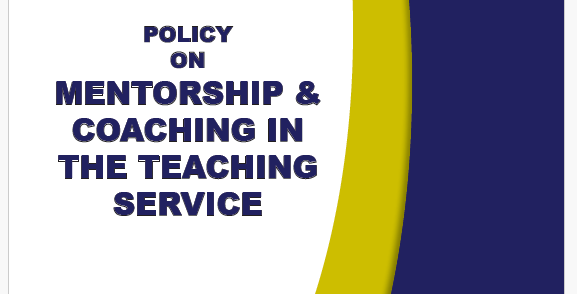The purpose of Induction
- To familiarize the inductee with professional obligations, relevant laws/ regulations, processes and procedures in the teaching
- To promote compliance to the teaching standards, professional conduct and performance and improved learning
- Ensuring the Inductee understands procedures and standard requirements which are critical in guiding their performance, professional conduct and work
- Builds their capacity and makes them valuable team players in their institutions.
- Composition of the Commission – Chairperson and eight (8) other members. Commission shall then appoint a Commission Secretary who is the Secretary/Chief Executive Officer and the Accounting Officer of the Commission.
- Structure of the Teachers Service Commission – Directorates at the headquarters and also offices in the Regions, Counties, Sub Counties, Zones and Agents (BOMs) at Institutional level.
- Legal Framework for in the Education Sector describe the legal provisions governing the Education sector and the teaching service. They include The Constitution, The TSC Act 2012, The Basic Education Act 2013, KNEC Act, 2012, KICD Act, 2012, Children’s Act, 2007, Sexual Offence Act, Code of Regulations for Teacher (CORT 2015), Code of Conduct and Ethics (COCE 2015), Basic Education Act (BEA 2013), Relevant Circulars issued from time to time.
- Professional Conduct
Professional conduct is the process of regulating the behaviour and actions of a member of staff as provided by the Policy and Legal Framework.
- Learner Safety, Protection and Support
All teachers and administrators are required to safeguard the rights of all children against all forms of inhuman treatment including corporal punishment. This is amplified in Section 4 of the TSC Act.
Financial Literacy Skills
Teachers are required to comply with provisions of the law through payment of relevant taxes and the Declaration of income, Assets and Liabilities.
Personal Health and Well-Being
A concept that aims at developing self- awareness and imparting skills in managing, monitoring and maintaining personal health by using positive interventions and actions. It is categorized into physical, spiritual and mental health giving the person the ability to make conscious decisions about their health.
- Institutional Financial Management Institutional Administrators are the Accounting Officers and are bound by Article 201 of the Constitution on Principles of Public Finance. They have the responsibility to comply with these principles as well as stipulations of the Public Finance Management Act and Public Procurement, Assets and Disposal Act (2015), relevant Statutory requirements and maintaining Financial Records as stipulated by the Basic Education Act (2013) and Regulations.
} Building Sustainable Institutional Culture (Institutional Memory)
Institutional culture is about the ‘Mission’, ‘Vision’, and ‘Beliefs’ that guide the behaviour of its members, teachers and students alike. It involves the underlying assumptions, attitudes, expected behaviour, values, commonly held beliefs of teachers, students, institutional Administrators, BoMs, Parents and the Institutional community that impact how the Institution operates.
} Emotional Intelligence (E.I.)
The ability to understand, use, and manage one’s emotions in positive ways to relieve stress. It should help the teacher to communicate effectively, empathize with others, overcome challenges and manage conflict. Emotional intelligence is commonly defined by four attributes namely: -Self- management, Self-awareness, Social awareness and Relationship management.
} Interpersonal Relationships and Skills
This is a social connection or affiliation between two or more people including loved ones, close friends, acquaintances, co- workers, and many others who make up the social connections in one’s life. It involves: – Awareness of self and others, caring for others, collaborating and working together, comforting others in times of need, use of proper communication and conflict
management and resolutions skills.
} Alcohol, Drug/Substance Abuse (A.D.A.)
It contributes to conflict, indiscipline and loss of employees at the workplace. ADA may cost the organization extensively as a result of declining health, non-commitment to duty and even deaths all resulting in low productivity.
} Conflict Resolution
A way for two or more parties to find a peaceful solution to a personal, financial, emotional or spiritual disagreement among them.
Action Research
A discipline-based process of inquiry conducted to inform the action to be taken to solve emerging challenges experienced in the classroom, school environment and the school community to improve performance and service delivery.
} Norms and Values
A norm is a standard of behavior while values refer to norms, principles and standards of behaviour expected of a teacher. The Inductee is therefore expected to understand and adhere to the principles of behaviour as stipulated in Article 10 and 232 of the Constitution and the COCE, (2015).
- Knowledge and Information Security Management Knowledge management refers to the handling of information and resources by an individual, among groups or within an institution or organization. Information security management refers to the set of policies and procedural controls that the organization has put in place and is implementing to secure their informational assets against threats and vulnerabilities.
} Preparing for Exit
It is important that all employees prepare for exit as soon as they enter the service as they will exit the teaching service at one point through one of the following ways: – resignation, termination, dismissal, retirement, redundancy, release to other public institutions or even death.
